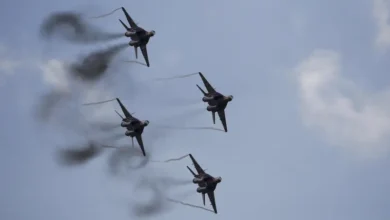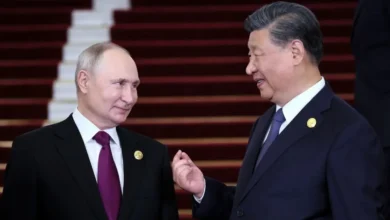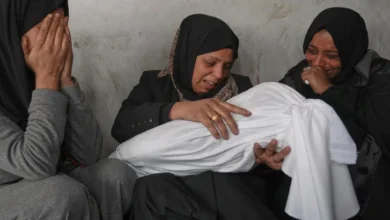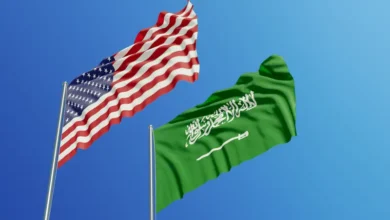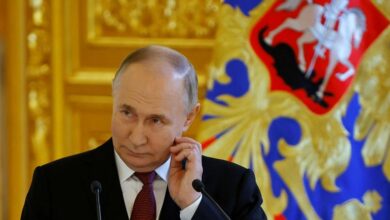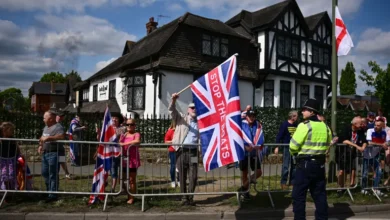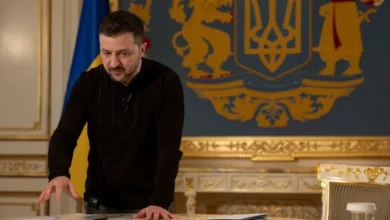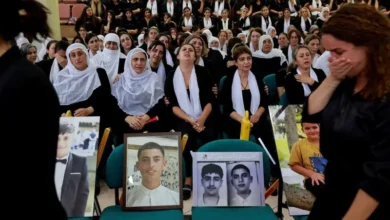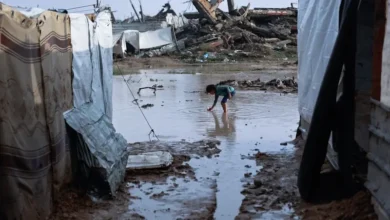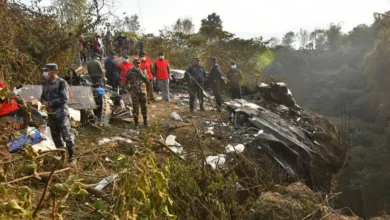US awaits response to Lebanon ceasefire proposal despite Israeli rejection: Diplomat
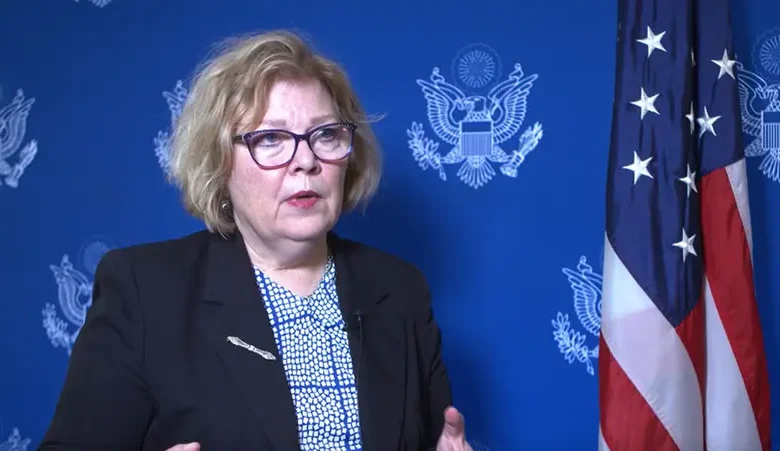
The top US diplomat for the Middle East said on Thursady that Washington was waiting for a formal answer from Lebanon and Israel on the American-French ceasefire proposal despite several Israeli officials rejecting any such attempts to halt cross-border clashes with Hezbollah.
“There’s a critical urgency to getting a ceasefire right now,” Assistant Secretary of State for Near Eastern Affairs Barbara Leaf said.
The proposal calls for an immediate 21-day ceasefire across the Lebanon-Israel border to provide space for talks on a diplomatic settlement in line with UN Security Council Resolution 1701, which put an end to the July 2006 war between Israel and Hezbollah. It will also give time to discuss the implementation of Security Council Resolution 2735 regarding a ceasefire in Gaza, which was based on the three-phase deal proposed by the US earlier this year.
Australia, Canada, the United Kingdom, the European Union, Germany, Italy, Japan, Saudi Arabia, the United Arab Emirates, and Qatar endorsed the proposal.
Speaking to Al Arabiya English on the sidelines of the UN General Assembly in New York, Leaf said US President Joe Biden and other partners from Europe, Asia and the Middle East agreed that the fighting must stop.
Israel’s foreign minister said there would be no ceasefire along the Blue Line. “We will continue to fight against the Hezbollah terrorist organization with all our strength until victory and the safe return of the residents of the north to their homes,” the foreign minister said.
Israeli Prime Minister Benjamin Netanyahu also said Israel would not stop hitting Hezbollah until residents return to their homes in the north.
One of the most extreme Israeli ministers, Itamar Ben-Gvir, previously convicted by the US of supporting a terrorist group, threatened to resign from the Netanyahu government if a ceasefire deal was agreed.
Asked about the apparent Israeli rejection, Leaf said the US had not received any formal response.
“I’m not going to characterize this in terms of optimism or pessimism. It’s a question of urgency to bring this fighting to a halt. There are civilians at risk, and there are communities on either side of the border who’ve been absent from their homes, their neighborhoods, and their villages for over a year,” she said.
Lebanon has said an estimated 500,000 people have been displaced in the south, and Israel says around 60,000 people have been forced to do the same on their side of the border.
Leaf said the US would wait for an official response from both. Lebanon’s caretaker prime minister was in New York and told reporters he was supportive of the proposal.
“We are in constant contact at the leadership level with senior officials in the Israeli government, and we have channels, of course, to Hezbollah,” Leaf said.
Homes, businesses and lands have been burned down and destroyed across large swathes of Lebanon, particularly in the south, leaving many of the displaced nowhere to return to.
When asked if the US would support plans to help reconstruction efforts in southern Lebanon, Leaf said: “That’s a set of issues which will come in time, but the most immediate issue is to get the guns to fall silent so that we can get diplomacy underway.”
Gaza ceasefire and links to Lebanon
Senior Biden administration officials said the proposal would possibly give time to discuss the implementation of Security Council Resolution 2735 regarding a ceasefire in Gaza, which was based on the three-phase deal proposed by the US earlier this year.
A senior US official told reporters on Wednesday that a ceasefire along the Lebanon-Israel border could galvanize efforts to revive stalled negotiations on an end to the Gaza war, calling the proposal “an important breakthrough.”
The US appeared to be linking the deals to each other. Hezbollah has said since it started attacking Israel on the day after the Hamas Oct. 7 attack that it would stop once a ceasefire agreement was reached in Gaza.
Leaf told Al Arabiya English that Hezbollah had done the linkage. Nevertheless, US officials have “the highest order” to work towards an end to the war in Gaza. “And the first stage is getting to that phase one of the ceasefire, which has been a very arduous task for the last weeks, but it is an ongoing piece that we are working on,” she added.
But on the other side, in the Hezbollah-Israel war, “that is a volatility and a dangerousness that drives us to [call for a halt to the fighting].”
While criticizing Hezbollah for linking the Gaza and Lebanon fronts by initiating attacks on Israel, Leaf said it was “extraordinarily unjust and unfair to the communities on both sides of the border.
“So, we want to bring that to a halt and get the diplomacy underway.”
